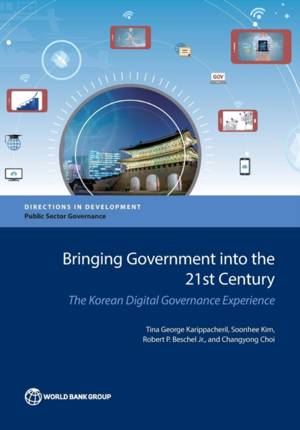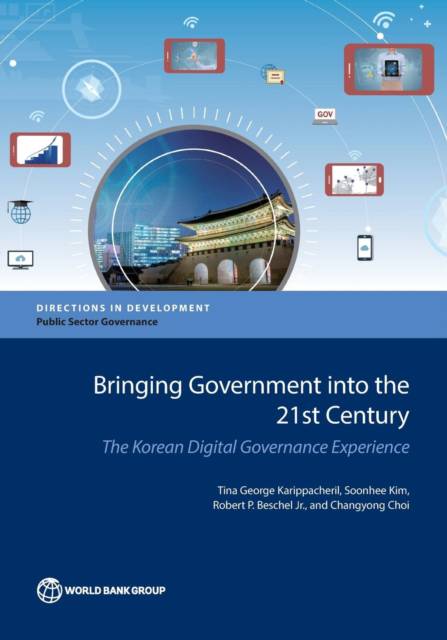
- Retrait gratuit dans votre magasin Club
- 7.000.000 titres dans notre catalogue
- Payer en toute sécurité
- Toujours un magasin près de chez vous
- Retrait gratuit dans votre magasin Club
- 7.000.0000 titres dans notre catalogue
- Payer en toute sécurité
- Toujours un magasin près de chez vous
56,45 €
+ 112 points
Description
This volume--a collaborative work between the World Bank's Global Governance Practice and a team of researchers working with the Korean Development Institute--is dedicated to the proposition that there is much that can be learned from a careful and nuanced assessment of Korea's experience with e-governance. It seeks to draw lessons both from the large reservoir of experience as to what has worked, as well as the more limited and isolated examples of what has not. In particular, it seeks to achieve two objectives. The first is to accurately understand, capture and distill the key dimensions of Korea's e-governance experience so that it can be properly understood and appreciated. Towards this end, some of the world's leading experts on Korea's e-governance experience have been engaged in its preparation, and their conclusions have been carefully vetted and reviewed by other leading scholars of the role of IT systems within government. The goal is to avoid flip generalizations or characterizations, such as 'political will is important' or 'it is important to embed e-governance within a broader strategy to develop a domestic IT industry, ' but to truly understand the complex interplay between differing political, economic and bureaucratic interests and how they shaped decisions about developing the technological and human infrastructure that would support Korea's successful thrust to be the world's leading nation in this area. The second is to ponder the lessons learned and what did and did not work from Korea's experience for other developing countries seeking to strengthen the role of information technology within their public sectors.
Spécifications
Parties prenantes
- Auteur(s) :
- Editeur:
Contenu
- Nombre de pages :
- 184
- Langue:
- Anglais
- Collection :
Caractéristiques
- EAN:
- 9781464808814
- Date de parution :
- 28-06-16
- Format:
- Livre broché
- Format numérique:
- Trade paperback (VS)
- Dimensions :
- 178 mm x 254 mm
- Poids :
- 331 g

Les avis
Nous publions uniquement les avis qui respectent les conditions requises. Consultez nos conditions pour les avis.






